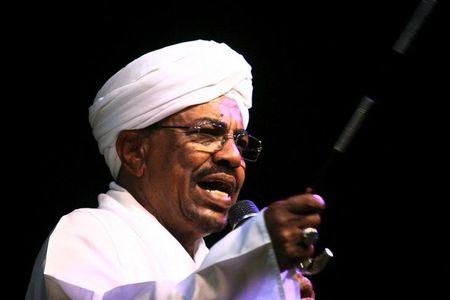Advertisement
Sudan's Bashir urges rebels to resume talks, only one notable group shows up
KHARTOUM (Reuters) - Sudanese President Omar Hassan al-Bashir formally reopened talks with rebel and opposition groups on Saturday but only one significant opposition party showed up, and he urged them to halt a boycott on dialogue in return for a ceasefire.
Bashir's government has been confronted by rebellion in its Darfur region since 2003 and a separate but linked insurgency in the states of Blue Nile and South Kordofan since the secession four years ago of South Sudan.
Eighteen opposition groups that had initially agreed to take part in a formal national reconciliation process at its inception in early 2014 pulled out this January, leaving the future of any such dialogue in question.
"I'm inviting the parties and rebels who are absent today to be part of a national dialogue. To those that did not come today we will not close the door, because they are Sudanese," said Bashir, who took power in a 1989 coup.
He was speaking in Khartoum at the start of what was billed as renewed talks with the opposition but which were attended by only one notable opposition group, the Islamist Popular Congress Party, which split from Bashir's political fold in 1999.
"If other parties are ready for the cessation of hostilities, we are ready to declare a comprehensive ceasefire."
The main armed rebel groups have rejected previous amnesty offers and refused to attend talks held inside Sudan. The government has rebuffed opposition and rebel demands to link political negotiations with peace talks.
Abdullah Mursal, a leader of the Sudanese Revolutionary Front (SRF), an umbrella organisation of rebel groups, told Reuters that an initial meeting should be held in the Ethiopian capital in accordance with a September African Union resolution.
"We will not be involved in talks like this (in Khartoum) that are decided upon unilaterally," Mursal said.
The National Coalition Forces, the main opposition coalition, also boycotted Saturday's gathering; it demands that Bashir repeal security and press laws and free political detainees before it enters into negotiations.
"The regime is not serious about these talks. We will not participate in dialogue before the government implements procedures to create the political climate for talks," National Consensus Forces spokesman Abu-Bakr Youssef said.
Bashir is accused of masterminding genocide, crimes against humanity and war crimes during Sudan's Darfur conflict and is wanted by the Hague-based International Criminal Court, which issued a warrant for his arrest in 2009. He denies wrongdoing.
The 72-year-old president, who extended his rule in April when he was re-elected with over 94 percent of votes after most opposition groups boycotted the vote, called for a national dialogue early last year but scant headway has been made.
Sudan has been suffering from an economic crisis since South Sudan seceded in 2011, costing Khartoum over 70 percent of its oil revenues.



















Add new comment